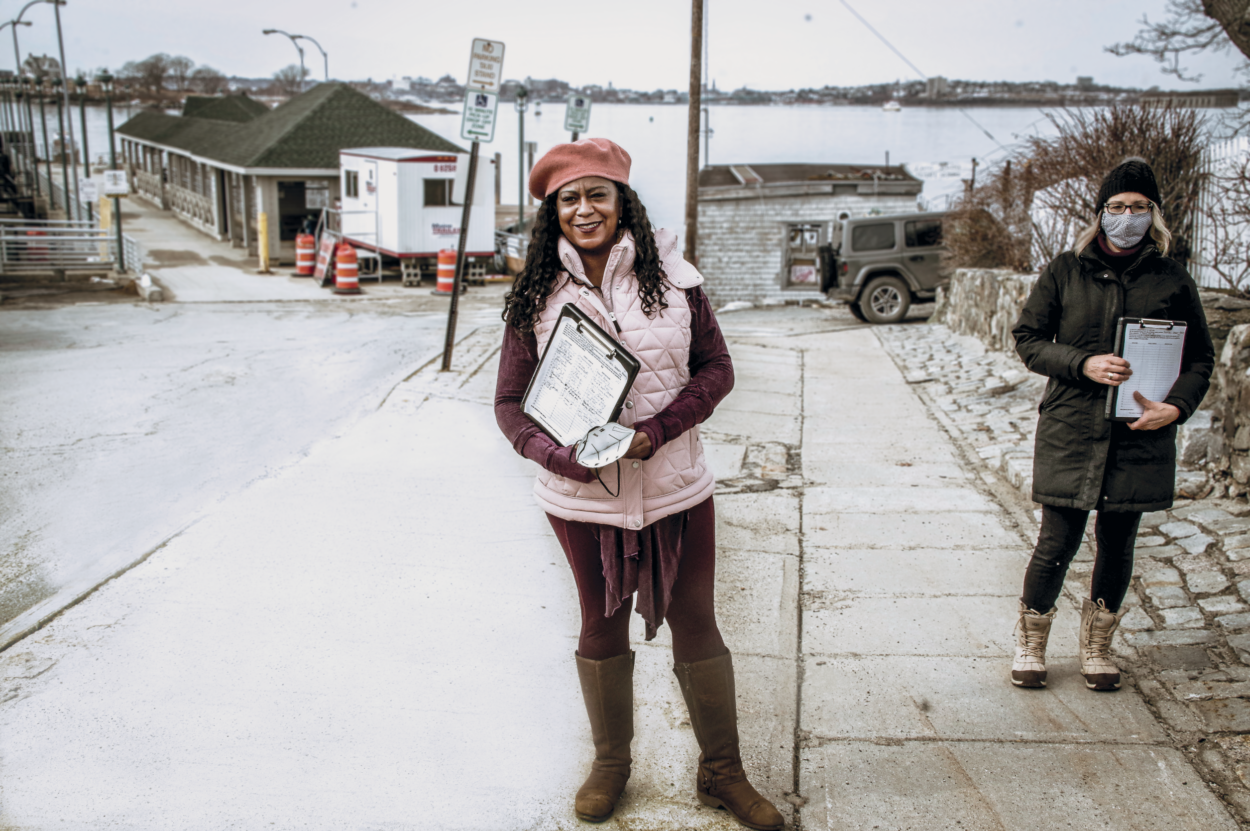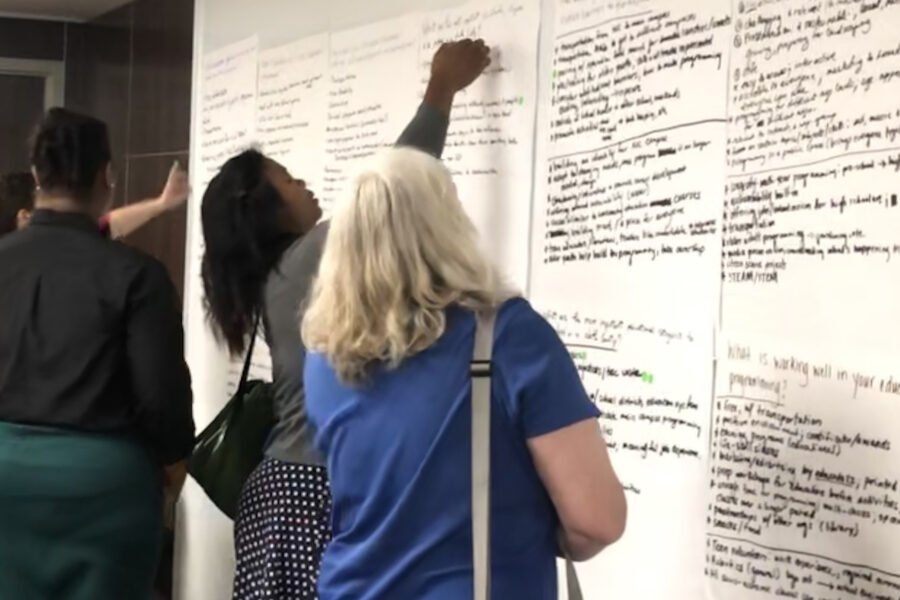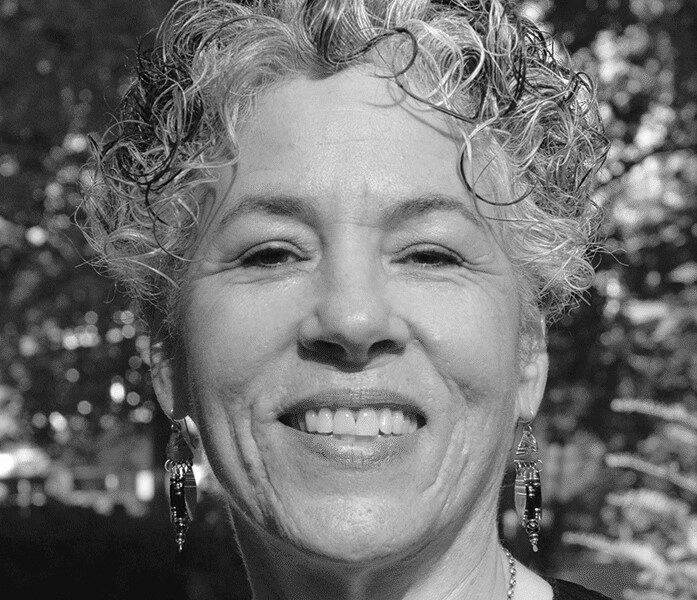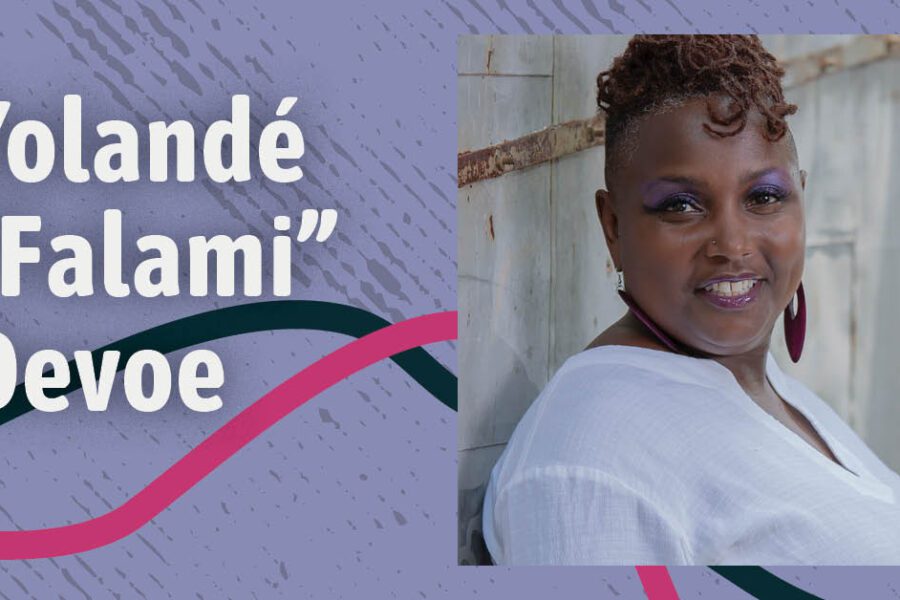A conversation with Shay Stewart-Bouley ’06 (Antioch New England, MEd in Administration and Supervision) reminds me of that Thelonious Monk tune, “Straight No Chaser”—if there is one thing you can be sure of, it’s that she’ll let you know exactly where she stands. There is no pretense, no politically-curated talking points, just raw, clear, precise opinions, supported by verifiable historical facts and deeply rooted in her own personal story. She is driven, opinionated, and relentless.
In 2003 Stewart-Bouley began to write a newspaper column tackling issues from motherhood to diversity and race. This experience inspired her to start the blog Black Girl In Maine, which today publishes multiple writers as Black Girl in Maine Media.
Finding one’s voice is a common challenge for writers. It takes time. But from the beginning Stewart-Bouley’s voice in both her writing and her public speaking has been nothing but authentic. It is the self-assured, confident voice of someone certain of her mission.
Using her online platform to explore issues of race and racism in the whitest state in the US, Stewart-Bouley has gained a national following. She is today one of the leading voices on the subject because her blog steers away from the academic and prescriptive and instead tells stories of real people, humanizing the experience in a way we can all understand.
Stewart-Bouley’s storytelling stems in part from her love of Studs Terkel. “I grew up listening to Studs Terkel on public radio, just talking politics, talking storytelling,” she explains. Her father was a prolific reader, and it was in his books that she came across Studs Terkel’s Working. She immediately admired his writing. “I loved the fact that he could tell the story of basic people and basic things, and give those stories color and life. I was really inspired,” she says. The influence is clear in her work. When I read her blog posts and listen to her many talks and podcasts, I’d say that Studs would be proud.
Born and raised in the South Side of Chicago, Stewart-Bouley obtained her undergraduate degree from DePaul University, where she self-designed a program to focus on African-American Health and Wellness. She then worked as a Case Manager at a homeless shelter, soon becoming Program Manager. Her rapid ascent in the organization speaks not only to her passion and dedication to working with marginalized communities but also to her intellectual acuity and organizational skills.
A couple of years later, due to unforeseen circumstances, she moved to Maine to be near her children. “It was a really hard adjustment,” she says now. “I mean, I often describe my early years here as feeling like I had landed on a whole other planet.” Maine’s population is roughly 94% white—in comparison with 32% in Chicago and 72% in Illinois. As Stewart-Bouley explains, it would have been a “major adjustment, even if I hadn’t been Black. But you throw in the all-white part, and it’s like, oh, you’ve got to learn a lot here.”
In Chicago, a graduate degree was not a requirement for the position she held at the homeless shelter, because her job did not include clinical work or counseling. The State of Maine, however, required a graduate degree to perform the same job. As a result, Stewart-Bouley was forced to consider returning to school. This brought her to Antioch New England, where she enrolled in the Master of Education in Administration and Supervision program.
She tells me the story of her first year at Antioch. While having heard much about Antioch’s commitment to diversity, she found herself to be the only person of color in her department. After the rocky transition to life in Maine, her arrival at Antioch “was an additional culture shock,” she says. She remembers attending a Halloween party “where this white dude shows up in a Rasta wig, and nobody says anything.” She pauses and muses that it was a different time then, and it’s a vastly different world now.
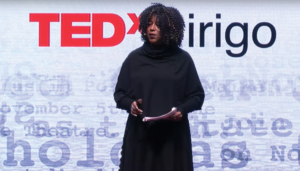
Then she tells me her second prominent memory of that time, when she attended a department lunch and was introduced to sushi. “I grew up in Chicago, working class—we don’t eat raw fish, we fry it,” she says with a laugh. “We go to this nice sushi place. I don’t know what to do. I’m looking at the menu and everything is sushi. Then I realize there’s tempura, so I’m like, yes!” It was an instance that taught her something about navigating white spaces as the only Black woman in the room. She says, “Being in this very white part of the country, it seemed like something you had to learn to eat in order to get along with people in professional settings.”
While still adjusting to her new reality, Stewart-Bouley confronted yet another unexpected challenge near the end of her first year, her mother fell suddenly ill and soon died. She was forced to take a break and considered giving up on school altogether. She tells me she actually had no intention of returning. “But when my mom was dying, she said to me, ‘If nothing else, you got to finish this degree.’” So she did return and went on to complete her degree and honor her mother’s wish.
Looking back now at her experience at Antioch, she says, “The skills that I learned at Antioch have definitely allowed me to run organizations and bring a piece of humanity into them.” Her current work as well as her writing, podcast interviews, and talks, are all an extension of that premise.
Stewart-Bouley currently serves as the CEO of Community Change Inc., a nonprofit civil rights organization in Boston that educates and organizes for racial equality. Community Change Inc. was established in 1968 after the Kerner Report looking into the causes of the race riots of 1967 deemed racism “a white problem.” The organization accomplishes its mission through education, advocacy, and working in solidarity with others to organize for change.
Stewart-Bouley has overcome the many obstacles that come from living in America, in a majority-white community, as a Black woman. She is determined to create change, and she distills the forms of racism down to four basic ones: interpersonal, institutional, structural, and cultural. She believes that institutional racism needs to be dismantled from within, which is why earlier this year she ran for the District 1 seat for the Portland Charter Commission. She won and is now serving her term. As she implores white folks to do, she leads by example—as leaders should. For Shay Stewart-Bouley, passivity is not an option.
In a September post about the revelation that a Portland pub was hosting monthly white supremacist meetups, Shay Stewart-Bouley lays out her view on how white people ought to fight racism. She writes:
“Fighting white supremacy requires white folks to move from a passive role of waiting to be told what to do to actually doing it. The fight cannot be done passively from the comforts of a middle-class existence. When literal white supremacists show up in town, you need to grab your book club and your brunch crew and get on that line to show your fellow white people that you are not standing for their crap. Stop expecting folks like me to be on that line with you. After all, if these fellas did get violent, who do you think they are going to grab first? Who do you think the police grab first? Use your privilege intentionally and in all ways.”

